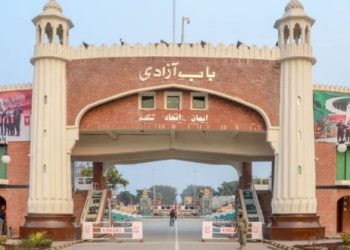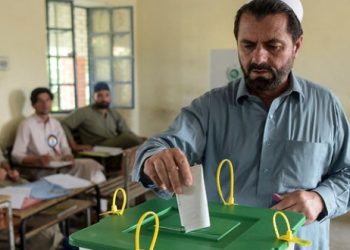ISLAMABAD: Petrol and diesel prices are expected to increase by Rs 4 to Rs 11 per liter over the next fortnight beginning February 16.
This rise is attributed to the surge in oil prices in the global market and an uptick in import premiums, buoyed by a slight improvement in the exchange rate. However, these effects are anticipated to diminish.
It’s worth noting that on January 31, prior to the general elections, the government hiked the price of petrol by 13 rupees and 55 paise per liter, and diesel by 2 rupees and 75 paise per liter, resulting in petrol reaching 272 rupees and 89 paise per liter, and diesel reaching 278 rupees and 96 paise per liter.
As per a private media report, informed sources revealed that petrol and diesel prices in global markets have surged in the past 15 days. Additionally, Pakistan State Oil (PSO) faced increased import premiums, despite the rupee’s appreciation against the dollar.
Consequently, diesel may see a rise of Rs 9-11 per liter, and petrol Rs 4, contingent upon exchange rate calculations, while slight increases are also expected in kerosene and light diesel prices.
Official reports indicate that over the past two weeks, gasoline prices increased by about $1.2 to $89.9 per barrel from $88.7 per barrel, while diesel rose by $3.5 to $101.82 per barrel from $98.4 per barrel. The rupee appreciated by approximately 40 paise against the dollar, with the Pakistani currency standing at 279.7 compared to 280 in the first half of February.
It was noted that PSO’s cargo premium remained steady at $9.7 per barrel for petrol and $6.5 per barrel for diesel, compared to $9.5 and $6.5, respectively.
In the ongoing financial year, the government is already imposing a development levy of Rs 60 per liter on both petrol and diesel, the maximum allowable under the law, as part of its commitment to the International Monetary Fund (IMF). Although the government aims to collect Rs 869 billion from petroleum levy, only Rs 475 billion was collected during the first half (July-December).
The government anticipates receiving Rs 970 billion by the fiscal year’s end, despite revising the target upwards to Rs 920 billion.
Most of the petrol is consumed in private transport, small vehicles, rickshaws, and motorcycles, directly impacting the budgets of low and middle-income earners.
Conversely, the price of diesel significantly impacts inflation, being used in heavy transport, trains, agricultural engines such as trucks, buses, tractors, tube wheels, and threshers, and predominantly in vegetables and other food items, causing their prices to escalate.
The government levies taxes of around Rs 82 per liter on both petrol and diesel. Although no sales tax is applied to petroleum products, a petroleum development levy of Rs 60 per liter is imposed on both, along with customs duties ranging from 17 to 20 rupees per liter.
Petrol and diesel constitute major revenue sources, with monthly sales reaching around 7 to 8 lakh tonnes, while kerosene consumption stands at only 10,000 tonnes per month.
(Islamabad51_Newsdesk)













